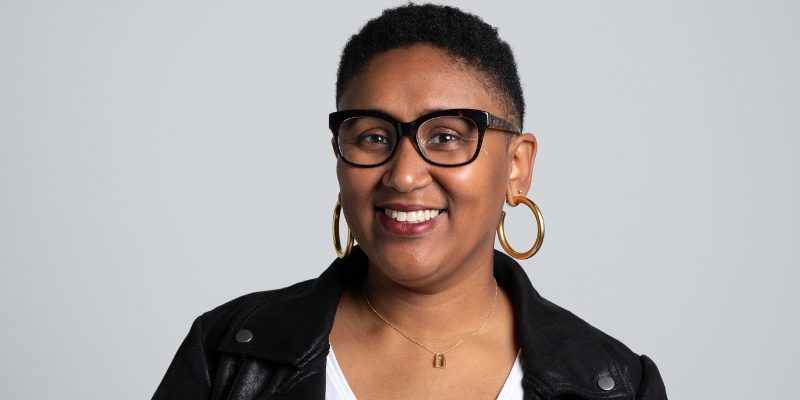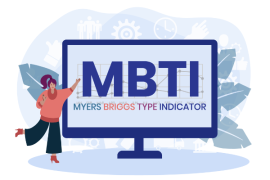By Jessica Steinhoff | Photo courtesy Trustage
Corporate diversity, equity and inclusion (DEI) programs are more important than ever. In a 2021 survey by the human resources association WorldatWork, more than 83% of American employers said they’re implementing DEI initiatives, and almost a third of this group reported taking their first DEI action within the previous year.
Angela Russell, chief diversity officer at TruStage (formerly CUNA Mutual), strives to make this progress an enduring part of the financial services firm. With employee strikes making headlines in the spring, 2023 has been a challenging year for the company — and proof that her work matters.
“Folks want to work for values-based organizations, places that aren’t sharing talking points but walking the talk,” she says. Demonstrating that an organization values differences can attract and retain not only employees but customers and investors. Plus, companies led by diverse executive teams outperform those led by homogenous ones, according to a 2019 study by management consulting firm McKinsey & Company.
Many DEI programs grow from seeds planted by entry- and mid-level employees. For this approach to work, buy-in from the upper echelons is essential, Russell says.
“You can go to your leadership team and say, ‘We need to do this,’ but if you don’t have a relationship, it won’t go far,” she explains.
If you lack regular contact with leaders, company meetings, social events and mentorship programs are opportunities to rekindle relationships. But what comes next in helping to build or strengthen a DEI program? Russell has tips on that, too.
- CULTIVATE A CULTURE OF BELONGING.
In a culture of belonging, employees tend to value differences and help frequently marginalized groups — people of color, LGBTQ+ folks and neurodivergent individuals, to name a few — feel comfortable and supported.
This type of culture can flourish through employee-led groups where people who share a particular identity or interest gather to share their experiences. According to Russell, TruStage has 13 such groups that help employees “feel seen and heard,” build community and connect with allies willing to work toward common goals.
- SHARE COMPELLING DATA.
Once you’ve built trust among leaders and allies, you can sow seeds for future DEI initiatives. Russell recommends having data ready and points to McKinsey’s reports on diverse workplaces’ heightened profitability. Data about the growing diversity of American communities can also be powerful.
“Your workforce needs to reflect your current and future customer base,” she says, arguing that diverse organizations are best equipped to gauge the needs of customers with an expansive range of backgrounds and identities.
- THINK BROADLY AND GO DEEP.
When minds need opening and coalitions need building, change tends to be gradual. That’s why one of Russell’s top tips is to consider the long game.
Decisions too focused on the short term — for example, flying a Pride flag without supporting the LGBTQ+ community in other ways, like sourcing supplies from members of that community — can be counterproductive. Russell says actions such as those often come across as virtue signaling, making people doubt the company’s commitment to the cause it claims to support.
Russell also recommends viewing DEI through a wide lens, including race, ethnicity, gender, gender identity, sexual orientation, disability status, religious affiliation and educational background. She recalls an intern showing her how getting to his workspace was a logistical nightmare, even though his wheelchair fit through the front door and into the elevator, meeting federal accessibility requirements.
“That was a lightbulb moment: Compliance does not equal inclusion. It got me thinking about who’s benefiting and who’s burdened in decision-making,” she says.
This kind of lightbulb is just what some DEI seeds need to germinate. Sharing your own “aha” moments with decision- makers takes a little vulnerability, but the payoff can be big.
POPULAR PODCAST
One of Angela Russell’s favorite extracurricular activities is her podcast, “Black Oxygen.”
“In Madison, I hear a lot of ‘I don’t know a lot of Black people’ even though we’re everywhere,” she says. “I want to bust myths and amplify Black voices across the state [that aren’t] being profiled in the media.”
Over the past two seasons, “Black Oxygen” has featured UW Health diversity and cultural congruence resource nurse Jessi Evans Kendall, Milwaukee Film Chief Innovation Officer Geraud Blanks and members of the BIPOC Birding Club of Wisconsin, among others.
Russell hopes it helps listeners “breathe, connect and restore” by “listening deeply to Black folks in this shared journey of life.”
Find “Black Oxygen” on Apple Podcasts, Stitcher, Spotify and other podcast apps, or at madison365.com/blackoxygen.




